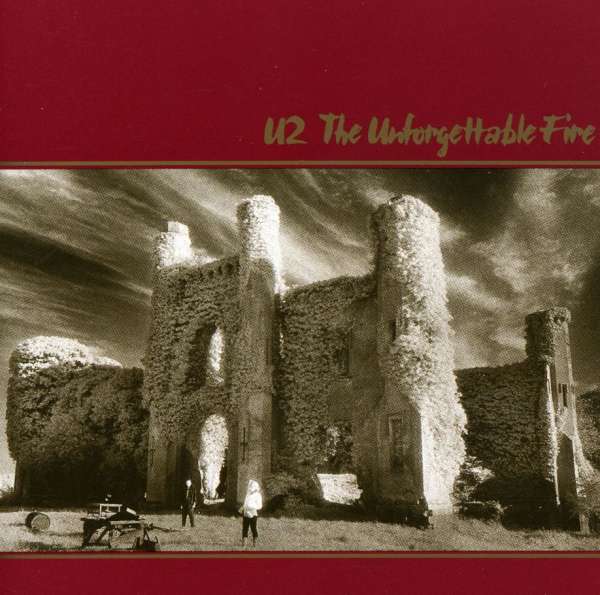
The Unforgettable Fire (1984)

1. A Sort of Homecoming 2. Pride (In the Name of Love) 3. Wire 4. The Unforgettable Fire 5. Promenade 6. 4th of July 7. Bad 8. Indian Summer Sky 9. Elvis Presley and America 10.MLK
With The Unforgettable Fire, U2 made the most daring move of their young career: they reinvented themselves. Up until this point, the band had forged a solid identity built on raw passion, tightly coiled rhythms, and a politically-charged energy. But here, they left their old sound behind. Gone was Steve Lillywhite, the man who had shepherded their first three albums. In his place came Brian Eno—esoteric, ambient, and visionary—and his assistant Daniel Lanois, both of whom guided the band into more abstract waters.
The result was a dramatic pivot. The restless clatter and defiant immediacy of earlier records gave way to atmosphere, mood, and space. Guitars were stretched and echoed into unfamiliar shapes, synthesizers whispered behind the mix, and songs felt less like declarations and more like meditations. To some longtime fans, this shift felt like betrayal. But the band knew exactly what they were doing.
And ironically, it worked. Commercially, The Unforgettable Fire was a breakthrough, buoyed by the massive success of Pride (In the Name of Love), a stirring tribute to Martin Luther King Jr. that gave U2 their first major U.S. hit. Although King’s name only explicitly appears in two of the songs—Pride and the quiet closing prayer MLK—his spirit seems to hover over the entire album. There’s a gentle solemnity throughout, a sense of yearning for something better, nobler, more enduring.
But this isn’t a record made for easy digestion. Promenade and 4th of July are brief, almost incidental, floating in and out like dream fragments. Neither offers much in the way of structure or message—they’re textural sketches more than complete thoughts. Elvis Presley and America is perhaps the most divisive track, a sprawling, murmured lament that baffled many listeners upon release. Only years later, when fans finally got a look at the lyrics, did its strange charm begin to reveal itself.
Yet the standouts are undeniable. A Sort of Homecoming opens the album with a hazy swirl, Edge’s chiming guitars weaving through Bono’s evocative lines. Bad remains a towering achievement—an emotional slow-build that became a live staple and, for many, one of the band’s definitive statements. And the title track, The Unforgettable Fire, with its pulsing rhythm and surging chorus, is every bit the overlooked gem, offering a majestic anchor to the album’s second half.
The Unforgettable Fire wasn’t designed to be immediate. It was, in many ways, an act of faith—faith that their audience would follow them into new terrain, even if that terrain was misty, disjointed, and difficult to navigate. And in time, most did. The record marks the beginning of U2’s transformation from promising post-punk provocateurs to something far bigger, far stranger, and ultimately far more influential.
In hindsight, this was the turning point. The moment the band abandoned the safety of what they knew in pursuit of what they might become. The gamble paid off.